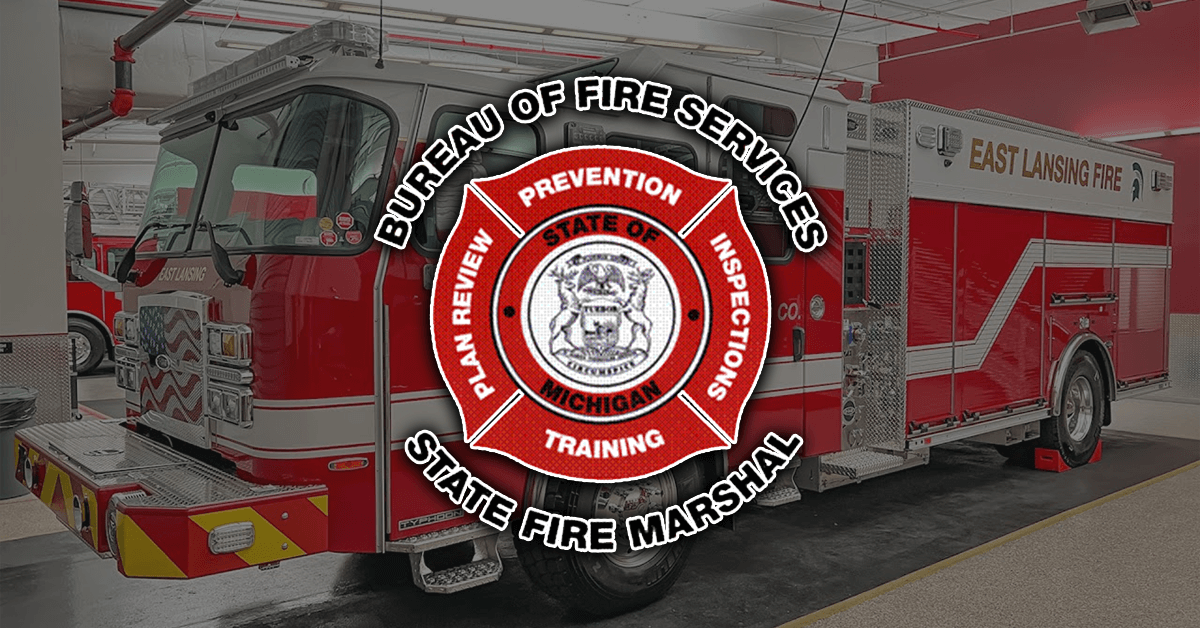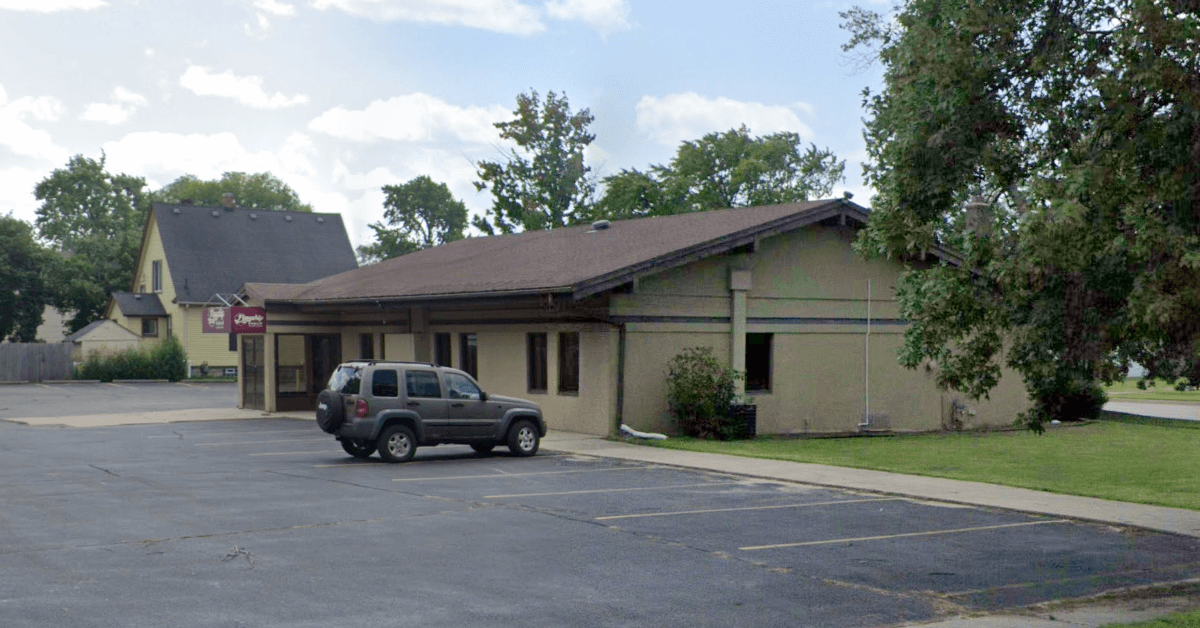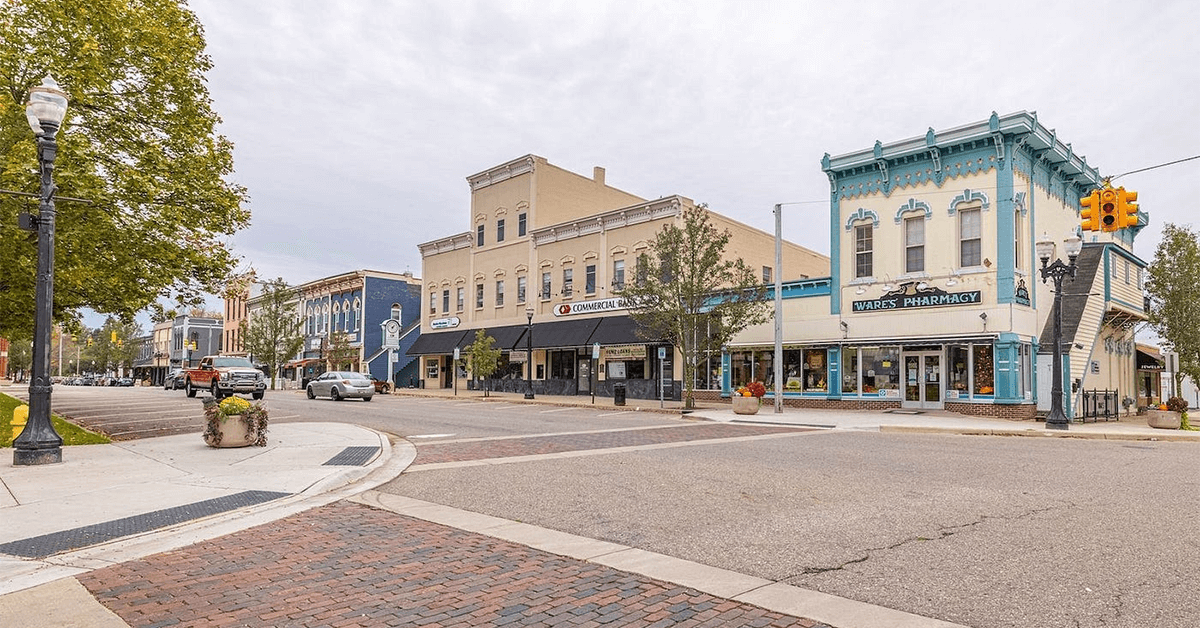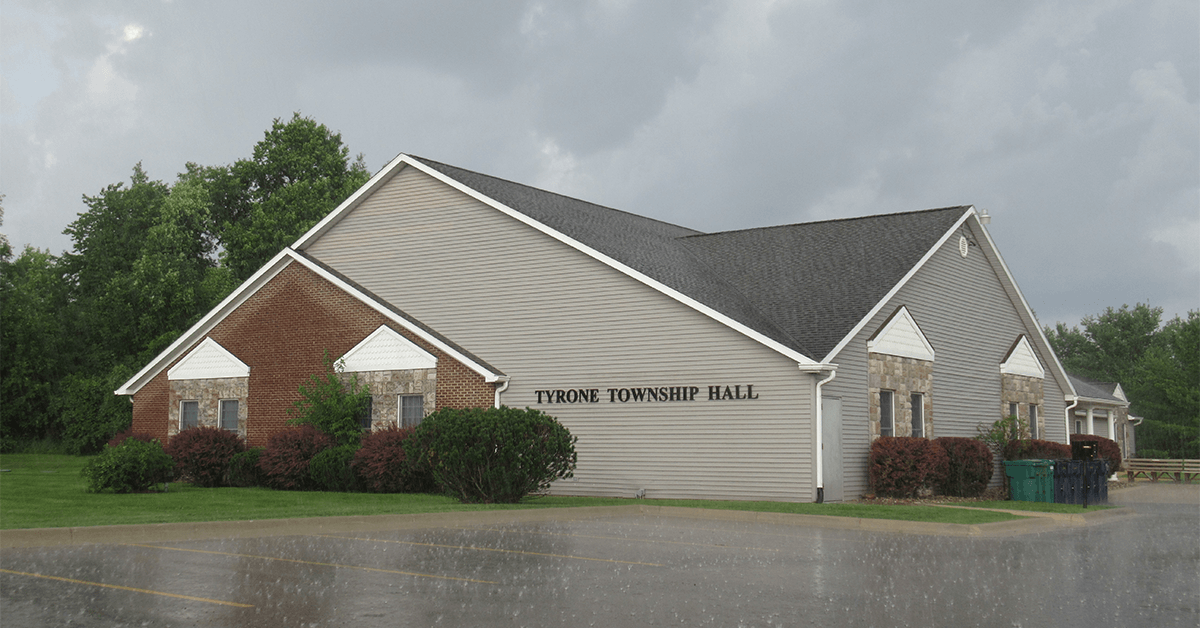Niles Township to Vote on Allowing Cannabis Businesses

Voters in Niles Township are set to determine in November whether cannabis businesses will be permitted in their community.
The Niles Township Board of Trustees has decided to place the issue on the upcoming ballot. If voters approve the measure, the current ban on cannabis establishments in the township will be lifted, allowing for the establishment of four cannabis businesses along Eleventh Street, south of Fulkerson Road.
In 2019, the township board chose to opt out of the state law that permitted recreational cannabis businesses. However, the success of cannabis businesses in other Southwest Michigan communities has prompted the board to revisit the decision.
If Niles Township approves the presence of cannabis businesses, the community could receive approximately $59,000 annually for each licensed cannabis dispensary from the state's Marihuana Regulation Fund.
Enhancing Fire Safety: NFPA 420 Standard for Cannabis Industry Underway

In the rapidly expanding cannabis industry, ensuring robust fire safety measures is critical for protecting both facilities and personnel. Currently, cannabis growers and processors adhere to the fire safety requirements outlined in the National Fire Protection Association (NFPA) 1, 2021 edition. This includes specific guidelines detailed in Chapter 38, which focuses on cannabis facilities. Recognizing the need for more comprehensive standards due to the industry's growth, the NFPA has initiated the development of a new standard: NFPA 420. This upcoming standard aims to specifically address the fire protection needs of cannabis growing and processing facilities.
Progress Towards a New Standard
The proposed NFPA 420 standard, titled "Fire Protection of Cannabis Growing and Processing Facilities," is set to provide targeted guidelines for the cannabis industry. The creation of a new NFPA standard involves an extensive and meticulous process, requiring collaboration among various stakeholders, including industry professionals, architects, fire safety officials, and code enforcers. The aim is to ensure that the standard comprehensively addresses the unique fire safety challenges faced by cannabis facilities.
NFPA 420 is currently projected to be released in 2027. Once finalized, it could become a key document referenced by the Cannabis Regulatory Agency (CRA) rules, potentially replacing or complementing the existing NFPA 1 standards. The ongoing development of NFPA 420 highlights the NFPA's commitment to adapting fire safety regulations to the evolving needs of the cannabis industry.
Public Input and Participation
The development process for NFPA 420 has reached the Public Input stage, allowing stakeholders and the public to contribute their insights and suggestions to enhance the draft standard. This is a crucial phase where diverse perspectives can help shape the final document, ensuring it effectively addresses all aspects of fire safety for cannabis facilities.
Interested parties are encouraged to review the draft standard and submit their input via the NFPA website. To access the draft and provide feedback, individuals must create a free NFPA online account using a valid email address and password. Once logged in, users can view the entire draft, including its table of contents and detailed chapters.
Feedback can be submitted online at nfpa.org/420next, where a link labeled "Submit Public Input Online" is available for contributors. The NFPA urges stakeholders to participate in this process, as their feedback can significantly impact the standard's development and effectiveness.
Looking Ahead
As the cannabis industry continues to grow, the establishment of NFPA 420 will play a vital role in enhancing fire safety practices within cannabis facilities. By incorporating insights from a wide range of stakeholders, the NFPA aims to create a comprehensive standard that addresses the unique fire protection challenges faced by cannabis growers and processors.
For those involved in the cannabis industry, staying informed and engaged with the development of NFPA 420 is essential. By contributing to the public input process, stakeholders can help shape a standard that promotes safer working environments and supports the sustainable growth of the industry.
New Cannabis Store Proposed at Former Port Huron Bank Site

Port Huron may soon see another cannabis retail store, this time at a former bank site on 10th Street. The proposal is set to be discussed during Tuesday's Port Huron planning commission meeting, where an application for a special use permit and rezoning of an adjacent lot will be reviewed.
Proposal Details
The applicant, MS Industries, LLC, is planning to develop what would be the sixth cannabis establishment to initiate operations in Port Huron over the past 18 months. As of Friday, representatives from MS Industries had not responded to requests for comments, leaving the timeline for opening uncertain.
According to the application, the proposed site at 1814 10th Street has been vacant for eight years. Previously a Flagstar Bank, the 2,300-square-foot property features a drive-thru window. The new cannabis store is tentatively named Leaf and Bud Port Huron.
The plan includes a request to rezone a lot immediately north of the former bank, at the corner of 10th and Division streets. This lot is currently designated as an R-1 district for single- and two-family homes but would be changed to a C-1 district for general business use. The vacant site is intended for parking, providing 39 parking spaces for the establishment.
Store Layout and Design
The proposed floor plan for the store features a public entrance vestibule, a waiting area, and two restrooms. The sales area will have a U-shaped restricted counter separated by swing doors, along with offices and employee spaces. There will also be stairs leading to a secure vault. Exterior plans show a Paige façade with black fiberglass roof shingles and insulated glass windows with aluminum frames.
Ownership and Licensing
Local landowner Keith Gurnsey has owned the 10th Street site since 2018. According to documents in Tuesday's agenda, he has entered a real estate purchase agreement with Michigan Wellness Partners, LLC, which has a contingent lease with MS Industries.
MS Industries was not the original holder of the provisional license for the 10th Street address. That was Portage Acquisitions, which can transfer the license to another entity under a city ordinance approved by voters in 2020. The license for 1814 10th Street was initially granted to Portage Acquisitions, LLC, which also had other potential cannabis store locations, including 515 Wall Street.
Other Cannabis Developments in Port Huron
In May, planning commissioners approved a special use permit for the Wall Street site, with work appearing to be underway on this long-vacant property near downtown.
Additionally, permits have been granted for two other cannabis entities at 10th Street and Lapeer Avenue, as well as 1033 River Street. The latter, called the Exhibit, was planning an opening this month after a fire delayed its launch late last year.
Other recent cannabis store openings in Port Huron include JARS Cannabis at Quay Street and Huron Avenue, which opened last winter, and Moses Roses at 1600 Pine Grove Avenue, which began operations this spring.
The Port Huron planning commission will meet at 6 p.m. on Tuesday in the meeting chambers of the Municipal Office Center at 100 McMorran Boulevard. For more information, agenda materials are available online at the city's official website.
Mason Voters to Decide on Recreational Cannabis Sales in November

The city of Mason may soon join other Lansing-area municipalities in allowing recreational cannabis sales, pending the outcome of a city ordinance proposal set for the November ballot.
Earlier this month, the Mason City Council decided to present the ordinance proposal to voters during the general election. This decision followed a letter from Ypsilanti attorney Anderson Grandstaff, who, representing an undisclosed group of clients, indicated intentions to initiate a petition drive to overturn Mason's ban on recreational cannabis sales. This ban has been in place since the statewide approval of the 2018 Michigan Regulation and Taxation of Marihuana Act.
Should the ballot proposal pass, it would contribute to the broader expansion of recreational cannabis dispensaries in the region. To date, such dispensaries have primarily operated in Lansing, East Lansing, and Meridian Township. Eaton County saw its first dispensary open in Charlotte this summer, with a second one planned for the city. In contrast, Clinton County currently hosts one grower near Lansing but lacks recreational dispensaries.
Mason Mayor Russ Whipple noted that Grandstaff's petition was never circulated and was the sole petition brought before the council.
Grandstaff, who has been instrumental in promoting cannabis sales in various Michigan communities, declined to comment on his involvement with Mason or to disclose his client's identity.
In 2018, Michigan voters approved the legalization of recreational cannabis by a 56% to 44% margin. However, the law permitted individual municipalities to opt out of allowing sales and related businesses. Mason chose to ban retail cannabis sales, a decision echoed by many other communities across the state.
Mason City Manager Deborah Stuart highlighted the distinction between legalizing recreational cannabis use and permitting retail establishments within a community. She pointed out that industry-driven ballot proposals often lack local initiative.
During their July 15th meeting, council members took into account the 2018 general election results in Mason, where 2,245 voters supported legalization and 1,612 opposed it. This led them to opt for placing their own ballot question on the November ballot, rather than one proposed by Grandstaff.
The city's proposed ordinance, if approved, would allow for two retail cannabis establishments. The application fee would be $5,000, with additional renewal fees applicable.
Stuart mentioned that the city would provide a draft ordinance and additional information on its website at least 60 days before the election for residents to review.
A previous petition to overturn the ban did not garner sufficient signatures to reach the ballot. However, Grandstaff's recent letter, threatening a new petition drive with a proposed ordinance, prompted the City Council to reconsider its stance.
Grandstaff's letter to the City Council suggested that his client believed there would be substantial grassroots support for the proposed ordinance, aiming to avoid an adversarial relationship with the council.
Permitting retail cannabis licenses could also secure state tax revenues for Mason. Michigan's recreational cannabis market, valued at $3 billion, generated $87 million in tax proceeds distributed to 269 municipalities in February. Each city, township, village, or county with a dispensary received approximately $59,000 per establishment, potentially netting Mason $118,000 with two dispensaries.
Ingham County received $1.8 million from its 30 stores, ranking behind Bay, Kalamazoo, Washtenaw, and Wayne counties in store numbers. Lansing had about 24 businesses at that time, surpassed only by Ann Arbor and Detroit, with 26 and 59 shops, respectively.
Origins of the Proposal
Grandstaff's 2023 letter included a draft ordinance limiting Mason to two retail cannabis establishments, excluding growers, processors, facilities, and transporters. According to a city staff memo to the City Council, this proposal would lift Mason's prohibition on recreational cannabis retail businesses, creating a regulatory framework for licensing and guidelines for city employees.
Mayor Whipple noted that the proposed adoption process was impractical and that establishing a municipal framework for cannabis businesses was uncomfortable for city officials. Grandstaff expressed a willingness to discuss ordinance adjustments to align better with the city's preferences.
Mason officials collaborated with Grandstaff and reviewed Birmingham's approach to cannabis regulation. Birmingham had similarly been approached by an external entity proposing cannabis establishments. Birmingham chose to draft its own ordinance for a ballot proposal, which ultimately failed by a significant margin in November 2023.
Grandstaff's Broader Efforts
Grandstaff has pursued cannabis legalization in various Michigan communities through petition drives. Among these were Harbor Springs, Howell, Kinderhook Township, and several Oakland County cities, including Auburn Hills, Clarkston, Keego Harbor, Lathrup Village, and Leonard Village. Some of these efforts led to proposals on ballots, with mixed outcomes; for example, Keego Harbor and Auburn Hills approved ordinances, while others did not.
Michigan's CRA Comments on the Proposed Federal Rule Rescheduling Marijuana

The Michigan Cannabis Regulatory Agency (CRA) has submitted an extensive comment on the proposed federal rule for rescheduling cannabis. This comment, available in full on the CRA website, addresses key issues related to the proposed rescheduling from Schedule I to Schedule III. The CRA's submission aims to inform the Drug Enforcement Administration (DEA) and other federal agencies about Michigan's Medical Marijuana Program and provide critical considerations for rescheduling cannabis.
Key Points of the CRA's Comment
The CRA's comment is twofold: it provides detailed information and statistics about Michigan's Medical Marijuana Program, and it outlines a comprehensive list of considerations for federal agencies when determining whether and how to reschedule cannabis.
Michigan's Medical Marijuana Program
Michigan's program began in 2008 following a voter-approved initiative. The program has grown significantly, peaking in 2018 with nearly 300,000 registered patients and over 40,000 caregivers. Despite the legalization of adult-use cannabis in 2018, many patients continue to value the medical marijuana registry. As of the end of Fiscal Year 2023, there were 129,099 qualifying patients and 11,554 primary caregivers.
Considerations for Rescheduling
The CRA highlights several areas that require clear guidance and robust coordination from federal agencies to ensure a smooth transition if cannabis is rescheduled to Schedule III. These areas include:
-
Requirements Applicable to Schedule III Drugs: Federal guidelines must clarify how existing Schedule III requirements will apply to cannabis, considering that over 35 states have established medical marijuana programs and 24 states have adult-use programs.
-
Banking and Taxation: Rescheduling cannabis could enable businesses to access banking services and benefit from standard tax deductions and exemptions. Clear federal guidance is essential to address these changes.
-
Bankruptcy Protection: Allowing cannabis businesses to seek bankruptcy protection could provide crucial financial relief and restructuring opportunities. Guidance from the U.S. Trustee Program is necessary.
-
Packaging, Labeling, and Advertising: Standardized federal guidelines could streamline compliance and enhance consumer safety. Agencies like the FDA should issue clear directives.
-
Product Safety Standards: Uniform safety standards would ensure consistent quality across states, protecting consumers. The FDA should oversee these regulations.
-
Transportation and Interstate Commerce: Legal interstate commerce of cannabis products would require detailed federal guidelines, considering the diverse state regulations currently in place.
-
Research: Rescheduling could expand research opportunities using state-regulated products, necessitating clear federal research protocols.
-
Federal Enforcement: Rescheduling should prompt new enforcement priorities, potentially modeled after the Cole Memo, to ensure stability for state-regulated markets.
-
Federal Regulatory Agencies: Agencies such as the DEA and FDA should have defined roles in regulating cannabis post-rescheduling, with states retaining authority over specific aspects like licensing and distribution.
CRA's Stance and Offer of Expertise
Brian Hanna, the Executive Director of the CRA, emphasized the significant investment and effort by Michigan's licensees, caregivers, patients, and advocates in developing a leading cannabis industry. He stressed that rescheduling must be accompanied by comprehensive federal guidance to be effective. Hanna also expressed the CRA's readiness to testify at the federal level to share Michigan's progress in creating a robust regulatory framework.
Conclusion
The CRA's submission underscores the importance of a coordinated, whole-of-government approach to rescheduling cannabis. Without clear and comprehensive federal guidance, the rescheduling could potentially disrupt existing state programs. The CRA urges the DEA and other federal agencies to act responsibly and seize this historic opportunity to reshape cannabis regulation in the United States.
Tyrone Township Enacts 180-Day Moratorium on Medical Cannabis Facilities

Tyrone Township has enacted a temporary moratorium on medical cannabis facilities, halting all development, permitting, and operations for a period of 180 days. The Board of Trustees approved this resolution to allow time for a thorough review and potential revision of the township's current ordinance concerning medical cannabis.
Reviewing Ordinance for Compliance
The Board has tasked the Planning Commission with evaluating the township's existing regulations, focusing particularly on minimum parcel sizes and suitable locations for such facilities. This review aims to ensure compliance with Michigan's Medical Marijuana Act while avoiding exclusionary zoning practices that could limit where these facilities can be established.
The resolution acknowledges that there have been several inquiries about medical cannabis regulation within the township. Consequently, the township believes it is in its best interest to re-examine the Medical Marijuana Act along with associated rules, regulations, case law, attorney general opinions, and other relevant information.
Public Input and Supervisor's Comments
During the board meeting, Supervisor Mike Cunningham emphasized the importance of revisiting the current ordinance. He noted that there have been public comments and discussions indicating the need for a comprehensive review. "We do have an ordinance in place, but we want to make sure it's up-to-date and aligns with the latest legal and community standards," Cunningham stated.
The decision to impose the moratorium reflects the township's commitment to carefully consider all aspects of medical cannabis regulation, ensuring that any future development is conducted in a manner that benefits the community while adhering to legal requirements.
Next Steps for Tyrone Township
The Planning Commission's review will involve a detailed analysis of current zoning laws and how they apply to medical cannabis facilities. The goal is to create a balanced approach that accommodates medical cannabis operations without imposing unreasonable restrictions or creating conflicts with existing land uses.
Conclusion
Tyrone Township's 180-day moratorium on medical cannabis facilities represents a proactive step towards thoughtful regulation. By re-evaluating the township's ordinance and considering public input, the Board of Trustees aims to develop a framework that supports both the community's needs and the legal landscape surrounding medical cannabis.


 Helpful Links
Helpful Links